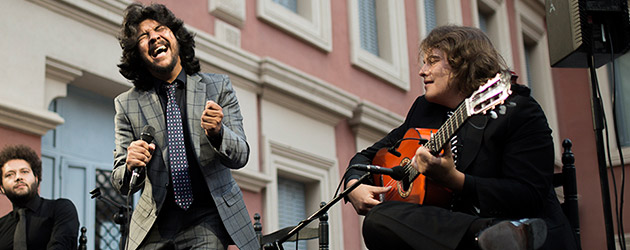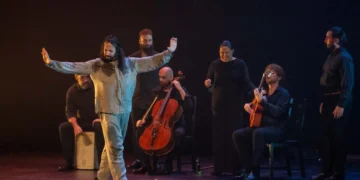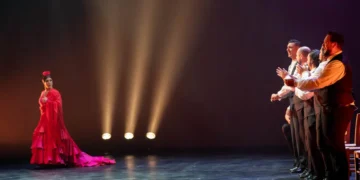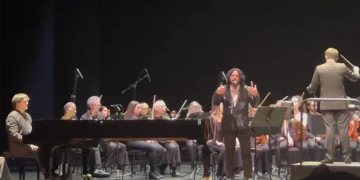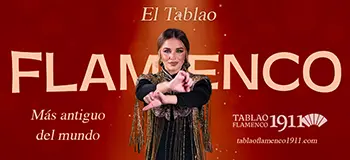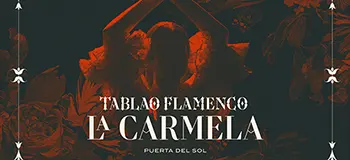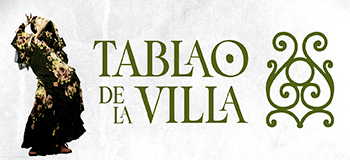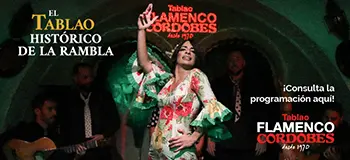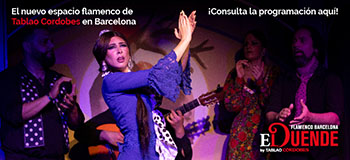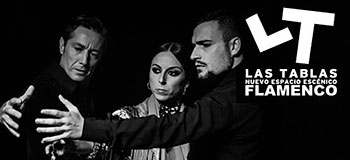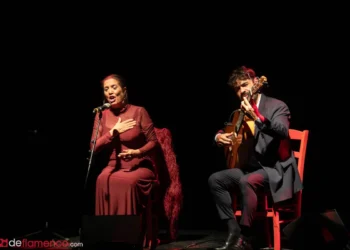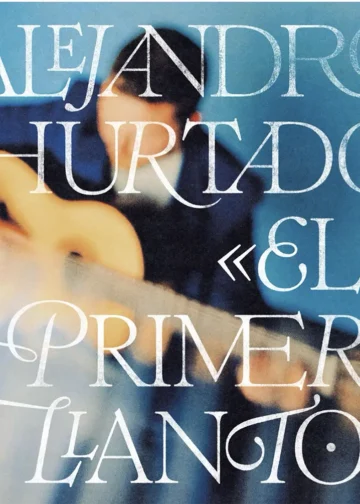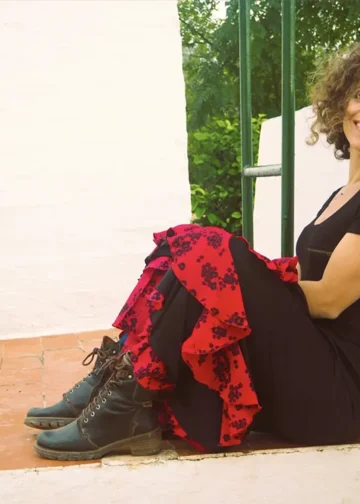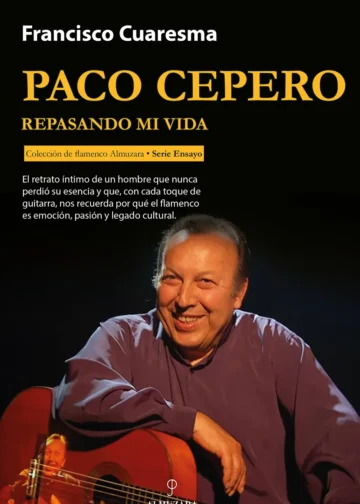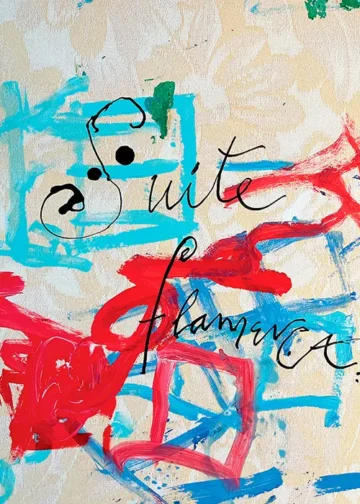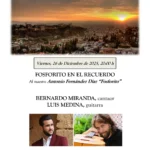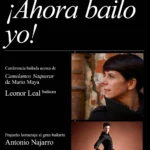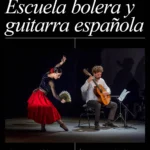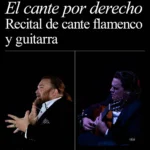Text & photos: Rufo
Rancapino Chico, voz; Paco León guitar; Manuel Cantarote and José Rubichi, rhythm
La Macanita, voice; Antonio Higuero guitar
Chicharito & Macano, rhythm
Museo Lázaro Galdiano (Madrid) June 24th, 2016
Sweetness and angst at the museum
One of my favorite sayings…well, more than a saying, it seems like an axiom...»if you take on too much, you can't grasp it tightly». This phrase is quite apt to describe yesterday at Madrid's Suma Flamenca. You can't aim to stage 5 singing recitals in the same day without their overlapping. The objective isn't filling seats, because some of the events were free, and that always helps. The important thing is to know how to give each artist his or her deserved place, to distribute the time for each recital so that each may have a corresponding day. I think names like Jesús Méndez, Pedro El Granaíno, Alonso Rancapino Chico and La Macanita are too big to program on the same day, and overlapping.
And if that seemed strange, even more so was putting Rancapino Chico and Tomasa la Macanita in the same show. The reasons being the above-mentioned. If at least they'd programmed a joint show, innovative, different in some way. But such was not the case, it was two separate recitals. I can't help but repeat that each one has sufficient weight in flamenco to have warranted a space and date of their own.
Aside from complaints about the organization, the artistic area was exceptional. It wasn't their best version, but they were quite adequate. The frigid audience that filled the gardens of the Museo Lázaro Galdeano made it clear that silence is not the best atmosphere for a singer, and it was no help at all in motivating the artists.
Alonso was accompanied by young guitarist Paco León, and the rhythm of José Rubichi and Manuel Cantarote. Tomasa had the guitar of Antonio Higuero, and the compás of Chícharo and Macano. Two groups that could each have been signed by Dalí, with precise rhythm and first-class accompaniment.
Although their artistic paths cross at some points, they are clearly different. While Alonso has a sweet delivery, Macanita is visceral. The reason behind each of these aesthetics can be directly traced to geography. Cádiz and Jerez. Two approaches to flamenco. Alonso knows how to be savage, and Macana dips into the honey pot when she feels like it, that's where their forms converge.
The young man from Chiclana was outstanding with soleá and fandangos, cantes with which he managed to push up the thermometer a bit, and more of the same with Macanita, who went from less to more to raise the temperature with her bulerías, unamplified and at the edge of the stage. Previous to that, she'd offered soleá (Juaniquí, Alcalá, Andonda, Frijones…). Few people nowadays can beat Tomasa in this area. Worthy heir to Fernanda, she is one of the maximum figures of flamenco, and must be treated as a treasure. She may not have had her best day yesterday, but the Jerez woman gives good flamenco fans what they need. And so we left, with our souls soothed by the exquisite singing of these artists from Chiclana and Jerez.
Descubre más desde Revista DeFlamenco.com
Suscríbete y recibe las últimas entradas en tu correo electrónico.


